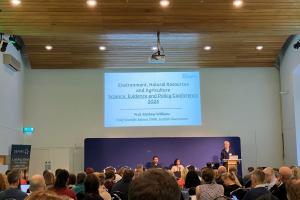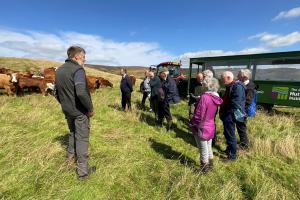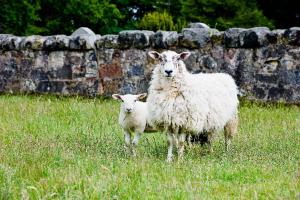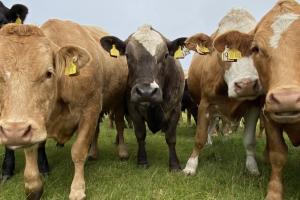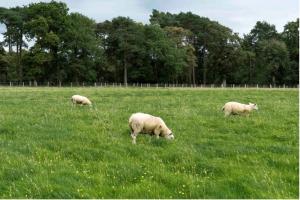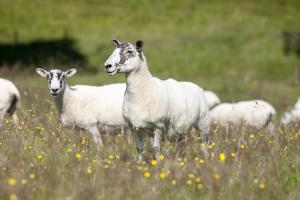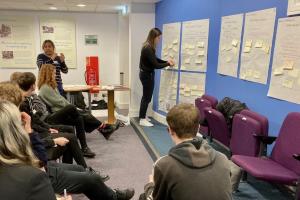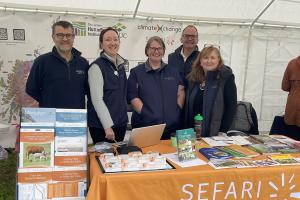Displaying 31 - 40 of 189
To mark this year’s International Day of Rural Women, our colleague Ana Vuin from Rural Policy Centre at SRUC, offers her insight on the role of women in agriculture and rural communities, challenges of representation, health and wellbeing, as well as opportunities to foster inclusive and fair rural society.
Title image: Hands together (Photo by Hannah Busing, Unsplash)
Climate Change Adaptation is one of the key items on the policy agenda in Scotland, and this was the main focus at this year’s ENRA Science, Evidence and Policy conference.
Organised by the Scottish Government’s Rural & Environmental Science and Analytical Services (RESAS) and held at Edinburgh’s Dynamic Earth, the conference brought together researchers and policymakers from across the rural and environment research and policy landscape in Scotland and showcased Scottish Government (RESAS) funded research evidence that is supporting climate change adaptation.
Climate-positive farming is key to Scotland’s climate change adaptation and mitigation.
In this blog, Prof Lorna Dawson, Knowledge Broker for Environment, reflects on her visit to the Climate-Positive Farming Initiative at the James Hutton Institute's Glensaugh Farm.
Reproductive diseases in sheep and cattle pose significant economic challenges. Therefore, SEFARI researchers at the Moredun Research Institute, funded by the Scottish Government’s Strategic Research Programme, are pioneering the development of new vaccines to tackle these issues. In particular, our focus is on preventing abortions and stillbirths in sheep caused by Chlamydia abortus (enzootic abortion of ewes also known as ovine enzootic abortion or ovine chlamydiosis) and in cattle due to Neospora caninum (neosporosis).
SEFARI Gateway are a silver sponsor at this year’s A3 Scotland conference - a not-for-profit two-day conference for the Animal Health, Agritech and Aquaculture (AAA) sectors, attracting attendees from all over the world to Inverness, to participate in plenaries, breakouts, investor panel and start up pitching, and sessions on funding, international showcase, skills and emerging solutions in AI, robotics, and sensors.
Ticks and tick-borne diseases (TBDs) are of growing concern in Scotland and the UK due to factors like climate change, wildlife distribution shifts, and changes in land use. This has led to increased tick burden in livestock and Tick-borne diseases (TBDs) outbreaks appearing in new areas, posing threats to livestock and public health.
Supported by SEFARI GAteway, the Royal Bank of Scotland, the RSA, and in particular the RSA Fellows Borders Network and the RSA Fellows Rural and Environmental Issues network Scotland and NFU Mutual, over 100 guests attended the Business breakfast from 8:30 until 10:30, in the Members Marquee, organised and welcomed by RSA fellow Mrs Ann Packard, FRSA, HonFRIAS.
How daunting and frustrating it must feel to be a young person now - as climate change gathers pace there is more uncertainty about what the future holds. Furthermore, many feel failed by society and powerless to influence the direction of travel.
During this year’s GO Falkland gathering, in the foothills of the mighty East Lomond Hill on the beautiful Falkland estate, an enthusiastic collective of farmers, growers, artists, scientists and policymakers came together to discuss what Regenerative Farming, Forestry, Land Use and Food means for them. During the event, we shared experiences and insight to collaboratively work towards the shared goals of the sustainable future.

